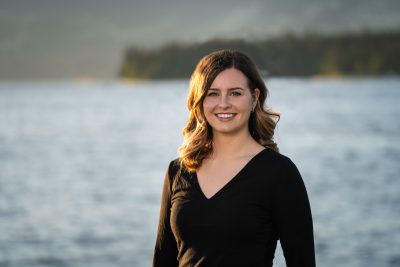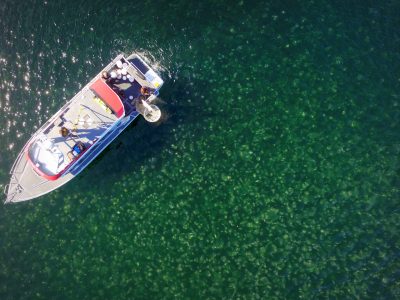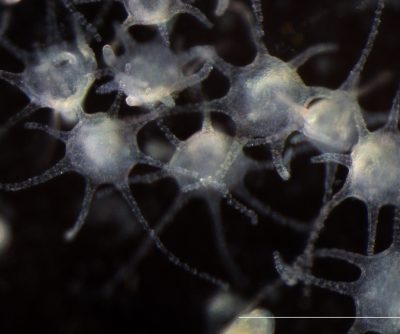 Institute for the Oceans and Fisheries (IOF) and Earth, Ocean and Atmospheric Sciences (EOAS) PhD student Jessica Schaub has been awarded the Hugh Morris Fellowship. This unique fellowship, administered by the Kimberley Foundation, will enable Schaub to take a tour of four countries, where she will work with specially chosen research partners who will deepen her understanding of jellyfish.
Institute for the Oceans and Fisheries (IOF) and Earth, Ocean and Atmospheric Sciences (EOAS) PhD student Jessica Schaub has been awarded the Hugh Morris Fellowship. This unique fellowship, administered by the Kimberley Foundation, will enable Schaub to take a tour of four countries, where she will work with specially chosen research partners who will deepen her understanding of jellyfish.
The fellowship, worth $40,000, is given to one or two Canadian graduate students a year and allows them to “undertake a program of self-guided travel and experiential learning.” Students must be researching a priority area related to Earth Sciences.

Schaub explores moon jellyfish (Aurelia aurita) bloom near Calvert Island, using a drone. ©Jessica Schaub
“I am just starting my PhD, so this fellowship came at a perfect time,” Schaub said. “I still have some flexibility to decide where my research will go, which will allow me to maximize the outcomes of this experience.”
Starting this July and ending in June of next year, Schaub will journey to Hiroshima, Japan; Montpellier, France; Mar del Plata, Argentina; and Exmouth, Australia, spending at least two weeks and perhaps up to a month in each location.
In Australia, she will study venomous Irukandji jellyfish on the Ningaloo Reef. In Japan, where blooms of jellyfish have created problems for local fishers, she will tour an edible jellyfish fishery in the Ariake Sea. And in Argentina and France, she will participate in fieldwork and experiments exploring the early-life “polyp” phase of the gelatinous sea creatures.
“The main focus is trying to understand jellyfish blooms, but centred around this idea that jellyfish blooms can have strong human impacts in some areas of the world, and I have to go outside of Canada to fully experience that,” Schaub said.

Moon jellyfish polyps ©Jessica Schaub
Schaub hopes to end the journey with a deeper understanding of jellyfish, and have an opportunity to share that with others.
“I’d like to turn this experience, and all of the cool media it will produce, into something that can engage schools and youth and get people excited about science, especially Indigenous people, young women and girls,” said Schaub, who is Alberta Métis, and has served as a mentor for UBC’s Indigenous Undergraduate Research Mentorship Program, as well as working teaching science to youth in northern Indigenous communities.
She is considering doing a podcast or a multimedia project that could be used as educational material.
“It could also be memorabilia of my trip, so I can go back and listen to in ten years and rekindle some memories.”
Related stories:
- Shedding light on mysterious jellyfish diets, October 14 2021
- HCI Marine Food Webs – Summer sampling trip to Quadra Island, September 19, 2019
- UBC researchers use drones to track jellyfish blooms, February 5, 2018
Tags: Awards, IOF students, jellyfish